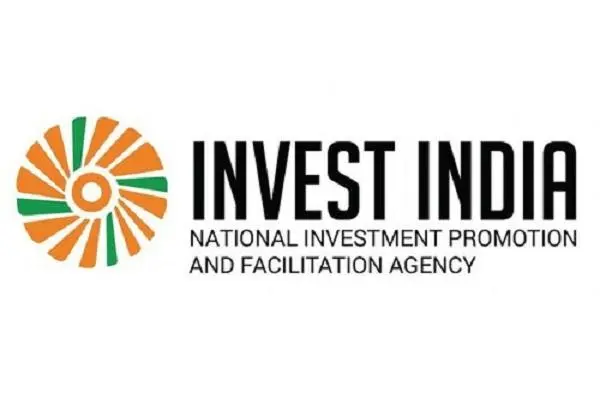Distinguished faculty members, newly minted diplomats, friends
It is a privilege for me to be here at this crucible of diplomacy in Korea. I thank the Academy for giving me this opportunity to interact with all of you. It seems like not so long ago that I was myself at the counterpart Indian institution – the Foreign Service Institute – as a young and untested diplomat but 25 years seem to have gone by. Indeed, the days are long but the years are short.
Friends,
I would now like to share my thoughts on India’s foreign policy priorities today.
We live at a time when our lives are inter-dependent and networked, yet diverse and challenging. We have unprecedented opportunities to spread prosperity, but we are also bound deeply by shared vulnerabilities. In foreign policy parlance, we live in a flatter world, in which traditional camps and alliances have crumbled and decision making has become far more complex. There was a time and age when countries belonged to blocs –Western, Communist and Non-aligned – and the USA and the USSR were two super-powers whose entire foreign policy was consumed with their mutual rivalry. Then came the break up of the USSR and with it the rise of a ‘multipolar’ world in which Asia has come into its own.
Today, we see greater focus on a more consensual approach, on greater cooperation among nations and new models of global engagement. Our economies and security are being shaped increasingly outside national boundaries, including in the domain of outer space, seas, high technology areas of science, artificial intelligence and cyber space.
In this changing world, Indian foreign policy too, has adapted and evolved. This has fundamentally been made possible by dramatic domestic changes that have both called for, and enabled, a changed approach to diplomacy. For one, our socio-economic development has been remarkable and has excited the interest of countries across the globe. India is today the world’s fastest growing economy, registering growth of more than 7% even at times when the rest of the world is slowing down. In Q1 of 2018, we have seen that India’s growth rate is a healthy 8.2%. We have recently become the sixth largest economy in the world and are well set to become, in just a few years, the 3rd largest economy behind the US and China. This rapid growth is taking place within a democratic and federal framework, within a society that is essentially secular, pluralist and that offers equality of opportunity to millions of people across the country.
With these changes at home has come a more confident, more robust engagement with the world. This is centred on some basic policies: the ‘Neighbourhood First’, ‘Act East’ and ‘Indo-Pacific’. Let me explain these concepts to you in a bit of detail.
The Neighbourhood First policy, at its core, refers to according priority, care and attention to the countries that are India’s immediate neighbours, both bilaterally and within the framework of regional groupings. This has translated into regular and intensive bilateral engagement with almost all these countries, commitment of substantial funds to development cooperation projects with these countries (to illustrate, we have committed over USD 8 billion to such cooperation with Bangladesh); This has also meant purposeful and well-crafted engagement within regional groupings and India has demonstrated political will to invest energy in leading South Asia in a positive direction. When we found that some of the existing regional architecture of cooperation such as SAARC hamstrung by the intransigence of a member State, we turned our focus to more promising avenues including BIMSTEC, BBIN and IORA. Our underlying presumption is that our neighbours must share in, and grow with, India’s own development and prosperity. Prime Minister Modi has repeatedly said India’s neighbours must be fellow travelers on our road to development and that their shared prosperity will create the basis for a secure and stable region. With this in mind, we have sought to bring about better connectivity and have asymmetrically opened our markets to the smaller economies in the region. And when we found that some of the existing regional architecture of cooperation such as SAARC was hamstrung by the intransigence of a member State, we have been innovative and come out with alternative structures such as BIMSTEC and Bangladesh Bhutan India Nepal or BBIN cooperation arrangement. As a country that has been the target of terrorism supported from across the borders, we have tried to forge consensus with other like minded countries to tackle the menace of terrorism firmly. Therefore, security cooperation, both military and intelligence, is an important feature of our engagement, firstly with the countries in our immediate neighbourhood, but also beyond.
The Act East policy marks a step up from the erstwhile Look East policy and accords primacy to our ties with the ASEAN and the wider Indo-Pacific. This is part of India’s strategy to accelerate the developmental path of the North Eastern Region. A very visual demonstration of this was the presence of all ten ASEAN leaders participating in India’s Republic Day celebrations this year as joint Chief Guests. The new big elements here are stronger emphasis on physical connectivity and on security. Therefore, the massive investment that we are making in mega connectivity projects in Myanmar and Bangladesh that should help us close the connectivity gaps between South Asia and the ASEAN region. All this is premised on the understanding that with rail, road, shipping links being created, the entire dynamics of the North Eastern Region will change.
A logical corollary to India’s Act East policy is the notion of the Indo-Pacific. The Indo-Pacific is a natural region that extends all the way from the Western shores of the USA right up to India. India’s engagements with its partners in the context of the Indo-Pacific region is based on converging vision and values for promotion of peace, stability and prosperity in an increasingly inter-connected region. A free, open, prosperous and inclusive Indo-Pacific region serves the long-term interests of all countries in the region and of the world at large. We do not see the Indo-Pacific Region as a club of limited members nor as a grouping that seeks to dominate. India's vision for the Indo-Pacific Region is a free, open, inclusive region, that embraces all nations in this geography in a common quest for progress and prosperity.
Prime Minister Modi has enunciated his vision of SAGAR – Security and Growth for All in the Region”. Sagar, which means oceans in Hindi, is an apt acronym for a concept that forms the basis for India’s maritime engagement in the Indian Ocean and beyond. The key pillars of this approach are enhancing capacities to safeguard land and maritime territories and interests; deepening economic and security cooperation in the littoral; promoting collective action to deal with natural disasters and maritime threats like piracy, terrorism and emergent non-state actors; working towards sustainable regional development through enhanced collaboration; and, engaging with others with the aim of building greater trust and promoting respect for maritime rules, norms and peaceful resolution of disputes.
Friends,
An important aspect of our foreign policy today is the positive management and simultaneous deepening of ties with all major powers, focusing on areas of potential and setting aside areas of divergence. India has, over the past few years, demonstrated that it has the capacity to engage all its partners in an open, transparent and mutually reinforcing manner. This has allowed us to transform our ties with the US into a durable and broad-based framework of global strategic partnership. At the same time, we have succeeded in consolidating our traditional partnerships with Russia, France, the UK and EU. We have also not forgotten our long-standing ties with African and Latin American nations and have made concerted efforts to engage dynamically with our friends in these continents. For instance, in 2015, India hosted the third India Africa Forum Summit, the largest gathering of African countries on Indian soil where representatives from all 54 African countries, including 40 Heads of States, met to contemplate ways and means to take this close partnership forward. We have also given a big thrust to our re-energising our partnerships with South Korea, Japan and Germany, hoping that we will be able to leverage these partnerships to facilitate our domestic economic transformation.
Such leveraging of our foreign policy has grown immensely in importance and scope and today, advancement of India’s economic and commercial interests has come to the forefront of all Indian diplomatic activity. As the External Affairs Minister of India has repeatedly said, for a developing country like India, diplomacy must above all be an enabler of domestic growth. As such, our diplomatic focus is on discovering bilateral or institutional partners that can contribute to flagship programmes of Government of India such as Make in India, Skill India, Digital India, Smart Cities, Swachh Bharat, Namami Gange, AMRUT, etc.
Friends,
There are certain abiding principles that have marked Indian foreign policy. India has always been known for an ethical and principled approach and our history will show that we have always dealt with the world with a pacific intent and purpose. Promoting peace, security and stability in the world and South Asia in particular has always been a core objective of India’s foreign policy. India has been guided since ancient times by the ideals of Vasudhaiva Kuttambakam – the world is one family. As a pluralist democracy in a volatile geopolitical neighbourhood, India seeks to remain an anchor of stability. India’s commitment to internationalism, independence of judgment in the conduct of external relations, support to the democratization of world order, and contributions to the maintenance of international peace and security are enduring legacies of our national movement. We need an open and equitable international trading system; a stable financial system; reliable, affordable and secure energy supplies; and food security. We will need bilateral as well as international partnerships of technology and innovation to meet the extraordinary scale of our development challenges. In turn, India’s own progress will, in its own modest way, affirm the values of democracy and pluralism; contribute to peace and stability; and provide one of the pillars of the global economy. As a country that has lived in the shadows of the arc of proliferation, India will not only maintain its impeccable track record on non-proliferation, but will play a more active role in building international partnership to combat proliferation and pursue the goals of nuclear disarmament. Finally, India will persist in its efforts to further reform multilateral institutions such as the United Nations, including the Security Council, World Bank and IMF to reflect contemporary realities and to improve their ability to address new challenges.
All these facets of Indian foreign policy enjoy strong support across the political spectrum in India. As such, we can be sure that in future too, India’s foreign policy will remain anchored in these core values even as it continually adapts to changing external circumstances and shifting domestic needs.
Friends,
I will close my remarks with a brief account of where we see our partnership with Korea heading. We see it as a close friend, a friend with which we share bonds of culture and history, share values of democracy, rule of law and market driven development. We regard Korea as an important partner in our development efforts and our rapid growth in trade and investment constitutes a strong foundation for our relationship. We also see huge opportunities for cooperation in science and technology as both countries are committed to work towards leadership in the 4th Industrial Revolution. India’s traditional strength in pure science and research offers a good match for Korea’s known prowess in new technology and innovation. We have therefore agreed to jointly finance and establish innovation centres that will allow our businesses, universities and laboratories and scientists to work together to innovate, pursue solutions to global challenges in infrastructure, clean energy, education, agriculture, health and delivery of services. We have the advantage of political goodwill to back us. The visit of Prime Minister Modi in 2015 and the just concluded visit of President Moon Jae- in July this year have elevated our relations to a completely new plane. As the Joint Vision statement issued after President Moon’s visit says, our ties have been placed in the context of a future-oriented partnership for peace, prosperity and for the people: “Three P’s Plus Future”. This is, of course, based on the clear synergy between India’s Act East Policy and Korea’s New Southern Community Policy; a perspective that naturally meets in the idea of a shared Indo-Pacific community. And we have extended its fullest support to the efforts being made by President Moon to bring about peace in the Korean peninsula. Indeed, we have always supported efforts to bring about peace and stability through dialogue and diplomacy. We welcome the Inter Korean Summits that have taken place and we also welcome the discussions between the US and the DPRK.
I will stop with this but am open to any questions that you may have. I hope I have given you at least some insight into the great country that I represent!
Thank you. Jai Hind.
______________
October 18, 2018
If raised:
Iran
India’s bilateral relations with Iran stand on their own and are not influenced by India’s relations with any third country. Both sides are engaged intensively in developing a long term partnership in energy; deepening of trade and investment cooperation; and early and full operations of Shahid Beheshti Port at Chabahar.
India is not a party to the JCPOA. The other parties to the JCPOA (UK, France, Germany, Russia, China, Iran and the European Union) have stated that they will abide by the Agreement. India maintains that the Iranian nuclear issue should be resolved through dialogue and diplomacy by respecting Iran's right to peaceful uses of nuclear energy as also the international community's strong interest in the exclusively peaceful nature of Iran's nuclear program. All parties should engage constructively to address and resolve issues that have arisen with respect to the JCPOA.
Disarmament
India has a long-standing commitment to the goal of general and complete disarmament based on the principles of universality, non-discrimination and verification and has played an active role in the international community's endeavors towards nuclear disarmament. As early as 1948, India called for limiting the use of atomic energy for peaceful purposes only and the elimination of atomic weapons from national armaments. India was the first country to call for a ban on nuclear testing in 1954. India remains committed to the goal of a nuclear weapons free world and complete elimination of nuclear weapons. It believes that this goal can be achieved through a step-by-step process underwritten by a universal commitment and an agreed global and non-discriminatory multilateral framework, as outlined in our Working Paper on Nuclear Disarmament submitted to the UNGA in 2O06. India is also participating in the GGE on Nuclear Disarmament Verification.
However, we maintain that the Treaty on Prohibition of Nuclear Weapons, negotiated outside the CD, does not create any obligations for India, which is bound solely by the treaties to which it has given its sovereign consent. India believes that this Treaty, in no way constitutes or contributes to the development of any customary international law. However, India stands ready to work with the signatories of the NPT to achieve the shared goal of nuclear disarmament.
We believe that the divide among the international community on different pathways to a nuclear weapons free world needs to be bridged through dialogue, cooperation and commitment to multilateralism. There is a need for meaningful dialogue among all States possessing nuclear weapons to build trust and confidence and for reducing the salience of nuclear weapons in security doctrines. India is also ready to support commencement of negotiations on an FMCT in the CD.
We would like to reiterate our commitment to non-proliferation in all its aspects. Accordingly, India has joined various multilateral export control regimes.
DPRK
it would be totally erroneous to compare the DPRK path to nuclear weapons with that of India. Firstly, India never been an NPT signatory. DPRK has been and it should abide by the obligations that it signed on to. It is well known that the DPRK began its nuclear weapons programme while it was still an NPT member. In addition, DPRK has itself endorsed the denuclearisation plan and should go by the commitments that it has made. India’s track record of being a responsible power that has voluntarily respected the principles and objectives of the NPT is well established. We are a law abiding nation with an impeccable record of nuclear safety and security.












